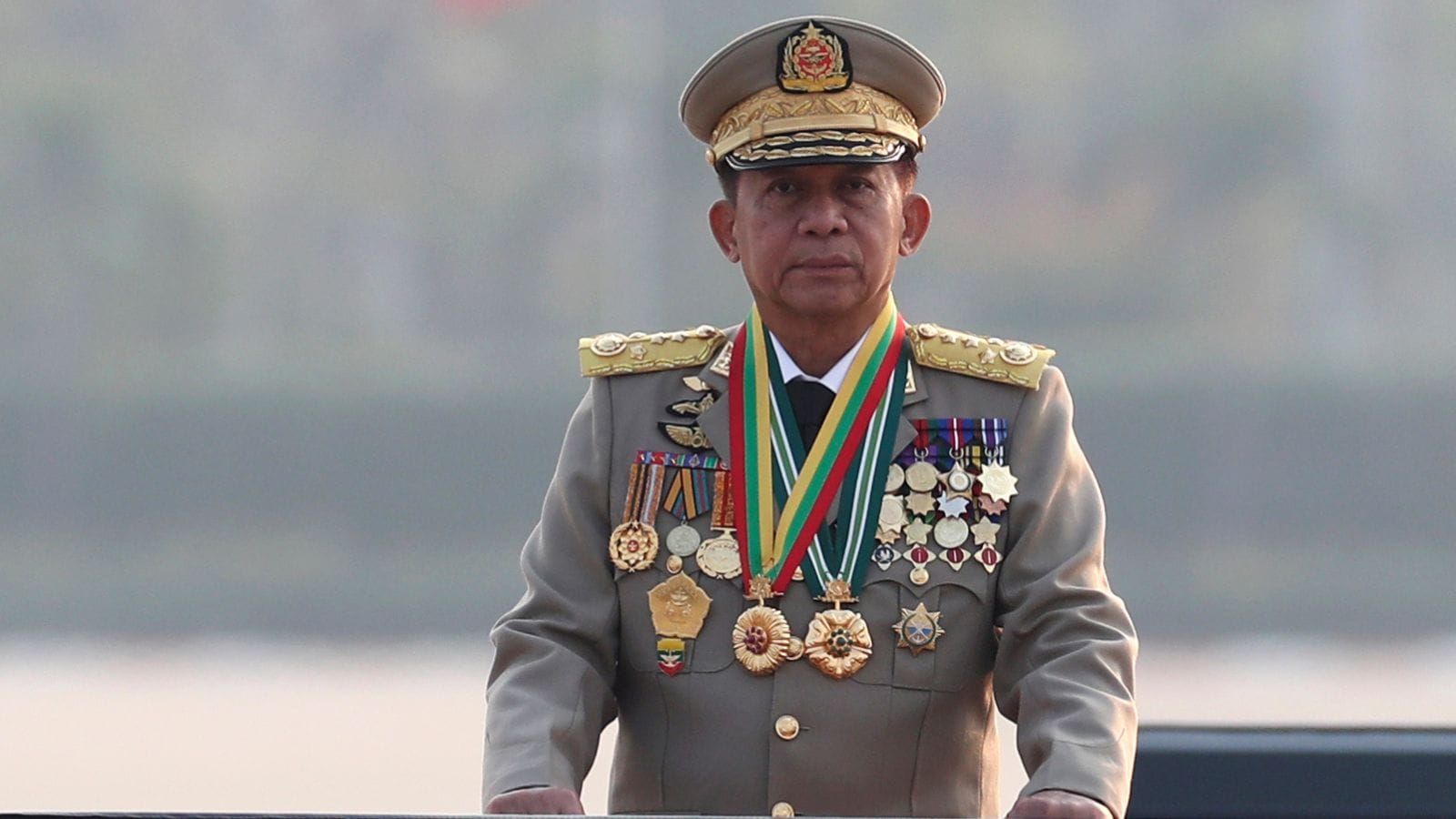Stay updated with the latest - Click here to follow us on Instagram
Myanmar junta extends state of emergency by 6 months as civil war rages
The emergency decree empowers the military to assume all government functions, giving the head of the ruling military council, Senior Gen. Min Aung Hlaing, legislative, judicial and executive powers.
 Senior Gen. Min Aung Hlaing, head of the military council on Monday July 22, 2024 also took the position of acting president to replace the holder of that post, who was unable to perform his duties due to health problems. (AP Photo/Aung Shine Oo, File)
Senior Gen. Min Aung Hlaing, head of the military council on Monday July 22, 2024 also took the position of acting president to replace the holder of that post, who was unable to perform his duties due to health problems. (AP Photo/Aung Shine Oo, File)Myanmar’s military regime has once again extended its state of emergency by six months. This decision, announced on Wednesday, marks the latest delay in the promised elections and comes as the junta grapples with its most significant challenge since seizing power in February 2021.
The coup, which ousted the democratically elected government of Aung San Suu Kyi, triggered widespread protests and a subsequent armed insurgency. Powerful ethnic minority militias and civilian resistance forces have since gained control over large swathes of territory, posing a serious threat to the military’s rule.
Under the extended emergency, the junta’s leader, Senior General Min Aung Hlaing, maintains absolute control over the country, bypassing the legislative, judicial, and executive branches of government.
The regime claims that the additional time is necessary to prepare for elections, a promise repeatedly made but consistently delayed.
The military is now estimated to control less than half of Myanmar, yet it remains resolute in holding onto much of central Myanmar, including the capital, Naypyidaw, which has recently faced small rocket attacks and two bombings.
The National Defense and Security Council has extended the state of emergency after Ming Aung Hlaing argued that additional time is needed to restore stability and conduct a census in preparation for national elections, according to state-run MRTV.
The proposed general election is widely viewed as a strategy to legitimise the military’s takeover through the ballot box, with the goal of ensuring that the generals maintain their grip on power.
Critics have condemned the military’s planned elections, arguing they will be neither free nor fair due to the absence of independent media and the arrest of most leaders from Aung San Suu Kyi’s National League for Democracy party.
The country’s 2008 constitution, drafted under military rule, allows for a maximum of one year of emergency rule, followed by two potential six-month extensions before elections must be held. However, the regime has blatantly disregarded this provision.
The decision was rubber-stamped by the National Defense and Security Council (NDSC), a military-controlled body that nominally serves as a civilian administrative government. Notably, the usual requirement for presidential approval was bypassed as the current acting president is on medical leave and has delegated his authority to the junta leader, Min Aung Hlaing. This is the sixth time the junta has extended the state of emergency since seizing power in February 2021.
The military originally announced elections would be held in August, 2023, but has regularly pushed the date back and has recently said they would take place sometime in 2025.
According to the country’s constitution, the military must transfer government functions to the president at least six months before an election can be held.
The 2021 military takeover sparked widespread nonviolent protests. However, after these peaceful demonstrations were suppressed with lethal force, many opponents of military rule resorted to armed resistance, leading to widespread conflict across large parts of the country.
Recent weeks have seen intense fighting in the northeast, where an alliance of ethnic militias claimed to have taken control of Lashio, which hosts a major regional military headquarters, and Mogok, the hub of Myanmar’s lucrative gem-mining industry.
Reports indicate that while regime troops still hold the regional headquarters, they may soon be forced out of Lashio.
Over the weekend, the main prison gate in Lashio was reportedly opened, leading to the release of over 200 political prisoners, including Tun Tun Hein, a former deputy speaker of Myanmar’s lower house and a senior member of Suu Kyi’s National League for Democracy party.
– With Inputs from The Associated Press
- 01
- 02
- 03
- 04
- 05































